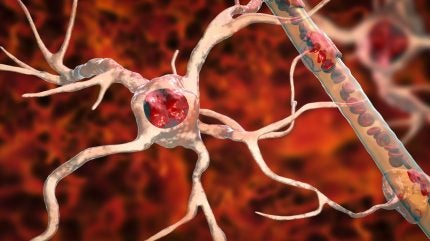
The US Food and Drug Administration (FDA) has granted clearance for Spinogenix’s investigational new drug (IND) application for the Phase I/II clinical trial of SPG302, a new therapy aimed at treating amyotrophic lateral sclerosis (ALS).
The trial will assess the tolerability, safety, pharmacokinetics, and pharmacodynamics of SPG302 given as a once-a-day pill in ALS patients.

Discover B2B Marketing That Performs
Combine business intelligence and editorial excellence to reach engaged professionals across 36 leading media platforms.
SPG302 has also been recognised by the FDA as an orphan drug for ALS treatment.
It previously received preclinical support from the US National Institutes of Health (NIH) and the Department of Defense (DoD).
The unique mechanism of SPG302, which aims to restore synaptic connections, could potentially reverse cognitive, respiratory, and motor declines associated with neurodegenerative diseases.
A Phase I/II study of SPG302 is underway in Australia, and the dosing of healthy volunteer cohorts has been completed.

US Tariffs are shifting - will you react or anticipate?
Don’t let policy changes catch you off guard. Stay proactive with real-time data and expert analysis.
By GlobalDataThe results demonstrated dose proportionality, tolerability, and plasma levels that align with the efficacy observed in animal models.
At present, the trial is progressing with the dosing of ALS patients.
Last June, the Australian Human Research Ethics Committee approved the initiation of human clinical trials for SPG302 as a treatment for ALS.
Spinogenix CEO and founder Stella Sarraf said: “Having completed the Phase I safety study in healthy subjects in Australia, we are thrilled to have gained FDA acceptance of our US IND for SPG302 in ALS.
“SPG302’s unique approach to regenerating synapses offers a fundamentally different treatment modality, focusing on synapse loss, which is central to ALS. Current treatments have not sufficiently met the needs of ALS patients, as slowing disease progression alone is not enough.
“We are committed to advancing SPG302 with the hope of providing a new, transformative therapeutic that can significantly improve the lives of those battling this devastating disease.”



